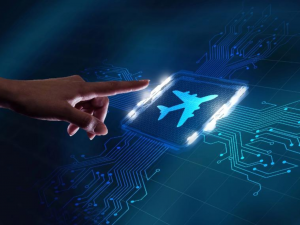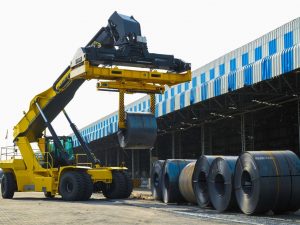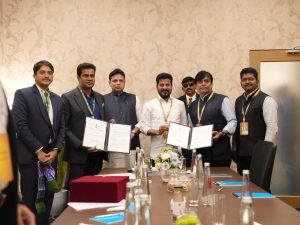Gautham Raju, Air Freight Specialist, said, “Global air freight industry is facing a freighter shortage due to rising cargo volumes, demand overlapping available capacity and increase in passenger traffic during recent trends increasing the payloads. Belly capacity was once a reliable supplement; it is no longer enough to meet the current surge in e-commerce and trade activity. With cargo demand expected to continue growing with initiatives, such as Make in India and new investments coming into the country, the need for more freighters is the need of the hour. Industry experts warn without more capacity, delays and congestion will worsen, impacting global supply chains and economies. As the demand for cargo space continues to rise, Indian Airlines fraternity should keep a close eye on fastening their orders and increase them based on needs.”
Read More »‘India needs freighters to power Its export surge’
CK Govil, CMD, Activair Airfreight, said, “India’s growing manufacturing, e-commerce and pharma sectors require freighters to ensure reliable, time-definite global connectivity. Belly capacity alone cannot support rising export demand from tier II and III cities. Freighters enable point-to-point uplift, temperature-controlled movement, and seamless integration with multimodal hubs. To make India a cargo powerhouse, expanding capacity is not optional — it is an immediate necessity.”
Read More »‘India needs modern freighters to meet 2030 cargo ambition’
Balagopal Balachandran, National Head, Air Freight, said, “With Indian export surge and e-commerce boom, this is the right time for carriers to invest in freighters tailored to specific cargo needs. K Ram Mohan Naidu, Union Minister for Civil Aviation, has highlighted the gap — the USA operates over 200 cargo aircraft, while India has only a handful. Beyond higher payloads, modern freighters offer technical advantages such as reinforced floors, oversized doors for heavy and outsized consignments, pallet-level RFID tracking, automatic weight-sensing, and door sensors to validate load build-ups. They also ensure dependable uplift schedules and load-factor economics, especially when belly-hold capacity is stretched due to rising demand and production delays. With India targeting 10 MMT of air cargo by 2030, a modern freighter fleet is not merely desirable — it is essential. Policy support, cargo-friendly airports, and incentives for P2F conversions can accelerate this shift and enable India to meet growing demand, while strengthening its position in global supply chains.”
Read More »‘Belly capacity limits air cargo potential of India’
Rajen S Bhatia, MD, Tulsidas Khimji, said, “With demand rising across e-commerce, pharma, perishables, advanced manufacturing, and over dimensional cargo movements, India’s reliance on passenger belly capacity is becoming a structural constraint. Dedicated freighters, not subject to passenger network limitations provide predictable uplift, rapid handling, and deeper regional penetration for time-critical exports, high-value imports and oversize/over dimensional cargo. Scaling up freighter operations will not only support specialised and cross-border cargo needs but also reinforce supply chain stability and accelerate India’s evolution into a world-class logistics hub.”
Read More »‘Lack of freighters slows down international air cargo growth’
M Afzal Malbarwala, MD, Galaxy Freight, said, “The shortage of dedicated freighters is a bottleneck in India’s air cargo growth story. With the surge in e-commerce and pharma shipments, freighters are essential to ensure timely and reliable cargo movement. India air cargo market is expanding rapidly, and demand will continue to rise. Despite this, we operate about 17 registered freighters — fewer than the nations whose exports are not growing as fast as ours. K Ram Mohan Naidu, Union Minister of Civil Aviation, has urged the airlines to expand their freighter fleets, as this capacity is critical for sustaining India’s export momentum and meeting future demand.”
Read More »‘Belly capacity can’t meet India’s rising cargo demand’
Amit Maheshwari, Founder and CEO, Softlink Global, said, “We moved about 3.7 million tonnes in FY25, and the trends point to 5 to 6 million tonnes within a few years. Belly space cannot keep pace because it swings with passenger traffic and doesn’t heavy, odd-size, or time-critical freight. India has barely 18 to 20 freighters today across Blue Dart, Quikjet, IndiGo CarGo, SpiceXpress, Pradhaan Air, and Afcom. That’s a thin fleet for a country pushing exports, pharma, and fast e-commerce flows. Without more freighters, the supply chain will stay tight and rates will stay volatile.”
Read More »Amazon announces US$35 bn investment to boost logistics ops
Amazon has announced plans to invest US$ 35 billion in India across its businesses by 2030. Amit Agarwal, Senior VP, Emerging Markets, said, “Amazon’s 15-year journey in India reflects its commitment to the country’s digital transformation and its vision of an Atmanirbhar and Viksit Bharat 2047. Looking ahead, we are excited to be a catalyst for India’s growth, as we democratise access to AI for millions of Indians, create one million jobs, and quadruple cumulative e-commerce exports enabled to US$ 80 billion by 2030.” The investment will focus on three strategic pillars: AI-driven digitisation, export growth, and job creation, alongside broader business expansion. The firm officials said the investments align with India’s national priorities and will strengthen AI capabilities, enhance logistics infra, support small businesses, and generate employment.
Read More »DP World unveils EXIM rail service from MP to Nhava Sheva
DP World has launched a EXIM rail service linking Powarkheda, Madhya Pradesh to the Nhava Sheva container terminal in Mumbai. The twice-weekly service operates from DP World’s Multimodal Logistics Powarkheda (DP World Powerkheda) and is designed to speed up cargo movement, while reducing logistics costs and emissions. DP World’s Powarkheda, Logistics Composite Hub brings an ecosystem to customers, including spacious warehouses, an inland container yard, and a dedicated rail area that allows cargo to be loaded and unloaded directly from trains. It is equipped with a container repair facility to make the containers suitable for rice and garment cargo. The facility includes space for processing and manufacturing of agri products, modern cold storage with temperature-controlled modules to support sensitive cargo such as perishables, pharma, and agri-commodities. Together, these facilities at Powarkheda enable customers to carry out value-added services, storage, and rail movement to port from a single location, helping reduce delays, improve efficiency, and lower overall logistics costs through faster, coordinated operations, and reliable connectivity to gateway ports.
Read More »TVS ILP signs pact to build MMLP in Telangana
TVS Industrial & Logistics Parks (TVS ILP) has signed a pact with the Telangana government to acquire 20 acres of land to develop a tech-enabled logistics and industrial park in the state. Ramnath Subramaniam, Joint MD, TVS ILP, said, “Telangana’s investment climate and infra vision present an opportunity for high-quality logistics development. As a company with operations across southern India, we see the state as a hub in our national logistics network. Its vision and seamless execution make Telangana an attractive investment destination and we are proud to contribute to its emergence as a global industrial powerhouse.” This proposed investment aligns with the state’s vision of emerging as a leading manufacturing, warehousing, and logistics hub in India. The initiative would generate more employment opportunities and support supply chain and industrial growth across multiple sectors.
Read More »IICS 2025 kickstarts in Mumbai, fosters growth & innovation
The India International Cargo Show (IICS) 2025 kickstarted in Mumbai as the global air cargo community came together for the highly anticipated industry showcase. Recognised as a premier meeting point for logistics decision-makers, the first day highlighted the latest advancements, challenges, and opportunities shaping global airfreight. This year’s exhibition brought an impressive lineup of participants, including leading international forwarders showcasing new service capabilities, cargo airlines presenting network developments, and major airports unveiling infrastructure upgrades designed to enhance cargo flow. Technology companies also played a central role, introducing cutting-edge digital tools, automation solutions, and visibility platforms aimed at improving efficiency and transparency across the supply chain. Attendees experienced panel discussions, keynote presentations, and product demonstrations focused on digital transformation, sustainability, e-commerce growth, and the future of global logistics. As the industry continued to evolve in response to shifting trade patterns and customer demands, the exhibition provided a vital space for collaboration and strategic dialogue. With strong momentum throughout, the first day of IICS offered an invaluable platform for networking, innovation, and partnership-building—helping industry stakeholders shape the next chapter of airfreight. The exhibition will continue till 12th.
Read More » Cargo Breaking News
Cargo Breaking News









